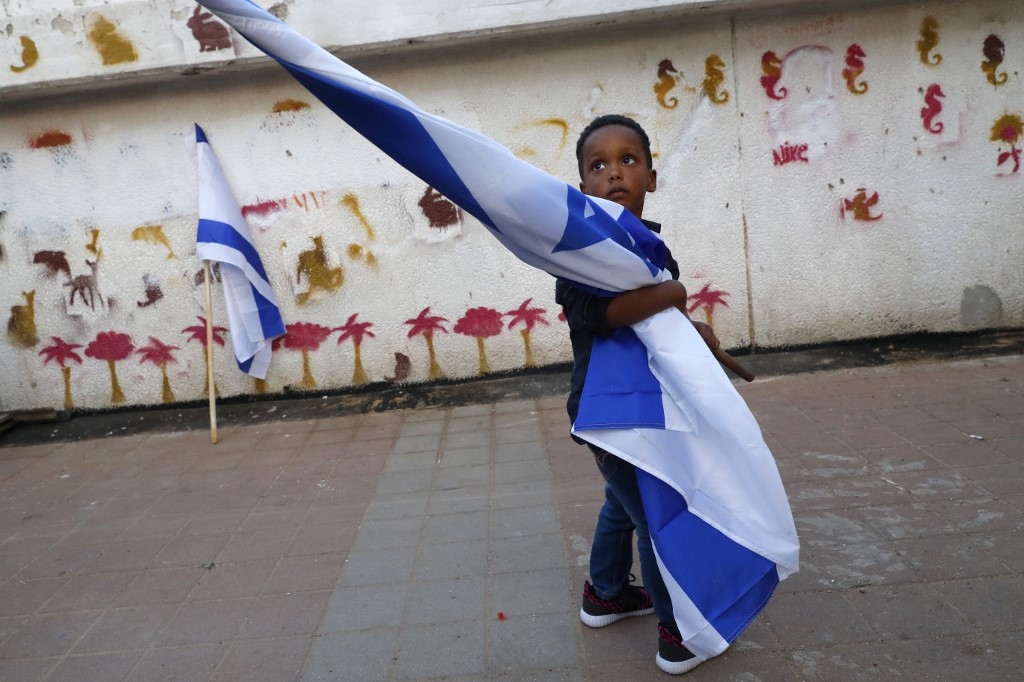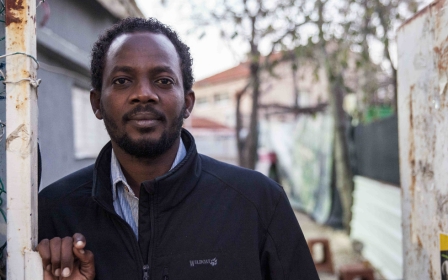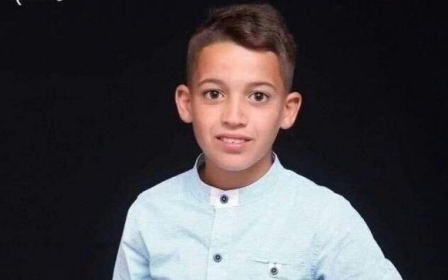Israeli press review: Tel Aviv schools separate migrant children from their Israeli peers

Segregation of asylum seekers in Tel Aviv schools
Israel's Tel Aviv-Yafo municipality is separating white Israeli students from their black peers in kindergarten and elementary schools, an investigative report by Haaretz has revealed.
Hundreds of students from families of asylum seekers and migrants were assigned to schools which were attended only by them and not by any Israeli students.
Haaretz reported that there were several such schools in the Tel Aviv-Yafo municipality area. Asylum seekers and migrants in Tel Aviv live mostly in the southern neighbourhoods of the city.
Some students had to travel or walk long distances to reach these schools, which suffer from poor educational standards and are located outside the registration zone, the area to which a school is allocated, normally based on its proximity to the students' place of residence.
New MEE newsletter: Jerusalem Dispatch
Sign up to get the latest insights and analysis on Israel-Palestine, alongside Turkey Unpacked and other MEE newsletters
'Segregation is hurting their ability to learn the Hebrew language quickly and properly… and contributes to the parents' feeling of alienation'
- Israeli refugee NGOs
Asylum seeker students can't read or write Hebrew, and some of them in the third grade can't hold a pencil, according to an Israeli official who spoke to Haaretz.
According to the report, "what counts is not the distance from home, but the distance from a blue Israeli ID card," which grants holders the right to permanent residence in the country.
In January 2018, Israeli Prime Minister Benjamin Netanyahu said that his government would force tens of thousands of African migrants to leave over the following three months by threatening to arrest those who stayed, and would pay $5,000 to each asylum seeker who left. Around 38,000 migrants, many from Eritrea and Sudan, are in Israel.
Out of 2,433 children from asylum seeker and migrant families, 2,228 are in elementary schools that are for foreigners only, while the other 205 students attended alongside Israeli children in seven schools, according to Haaretz.
Israeli law and Ministry of Education directives say that separation based on ethnic origin and skin colour is "unacceptable".
"The municipality insists on registration by geographical area and not by skin colour," Tel Aviv city officials told Haaretz. But the report said that records obtained of meetings of city officials revealed that they see the segregation as "necessary".
A report published by Israeli NGOs the Aid Organization for Refugees and Asylum Seekers in Israel (Assaf) and the Garden Library for Refugees and Migrant Workers said that "segregation is hurting their ability to learn the Hebrew language quickly and properly... and contributes to the parents' feeling of alienation and thus also detracts from the parents' involvement in their children's education".
It added that segregation was risking the students dropping out of schools.
Kobi Shabtai is Israel's new chief of police
Israel has appointed Kobi Shabtai as the next chief of police, Israel Defense reported.
"The decision on a permanent commissioner for the Israel Police is an important and essential decision, especially at this time, first and foremost for the future of the police and its resilience, and consequently for the future and the resilience of the country and the entire society," a statement by the Police Spokesperson's Office said.
Shabtai is currently the commander of the Border Police. He was named as Israel's next chief of police on Thursday by Minister of Public Security Amir Ohana. Shabtai will succeed Motti Cohen, who is retiring.
Ohana said that Shabtai was prepared to reform some departments of Israel's police force in order to take "the organisation in new directions," according to the Jerusalem Post.
But three top police officers said that they were quitting after the announcement of Shabtai's new role, reported the Times of Israel, while Cohen has criticised Ohana for delaying the appointment for two years, saying that "unnamed forces were intervening in the police's work".
Shabtai, 56, has served in the occupied West Bank in various posts and in an undercover unit in the Gaza Strip in the 1990s. His mother told Yedioth Ahronoth that he "was born with a gun in his hand".
* Israeli press review is a digest of reports that are not independently verified as accurate by Middle East Eye.
Middle East Eye delivers independent and unrivalled coverage and analysis of the Middle East, North Africa and beyond. To learn more about republishing this content and the associated fees, please fill out this form. More about MEE can be found here.




